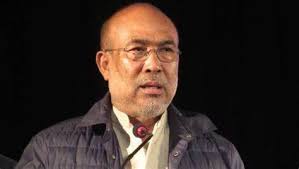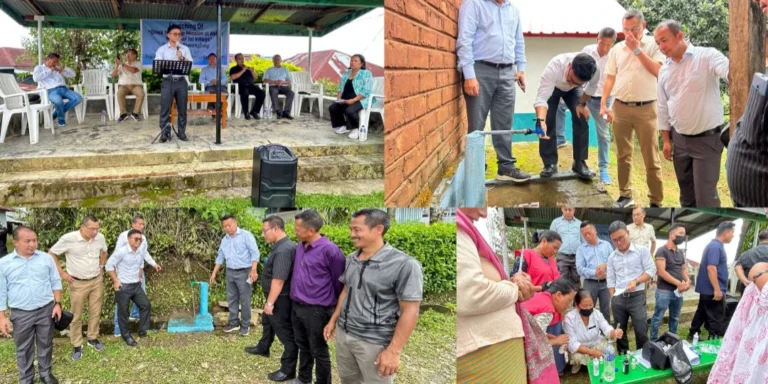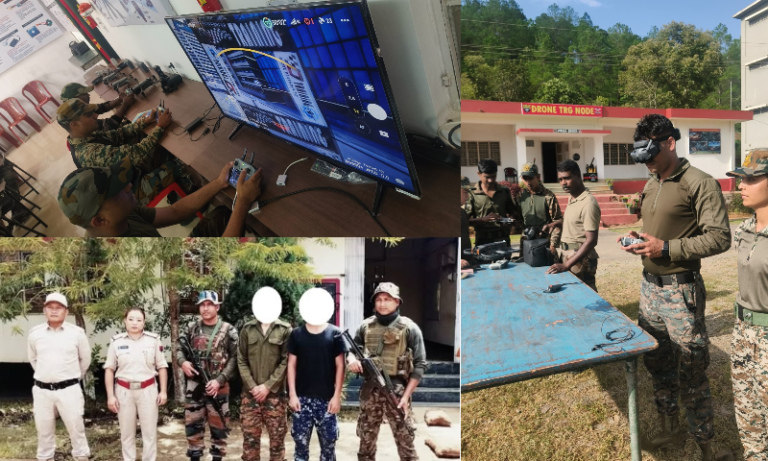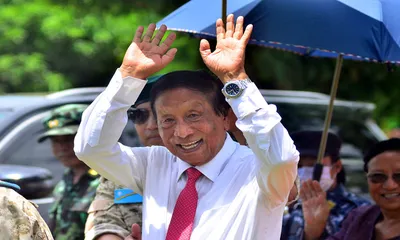Foreign Involvement Allegations in Manipur Crisis: A Deep Dive into the Controversy
Summary of the News Article
Manipur Chief Minister N. Biren Singh claimed foreign involvement in the ongoing unrest in the state, citing the arrest of Kuki National Army (KNA) members. The involvement of external actors has further complicated the state’s internal ethnic and political dynamics. This revelation has heightened concerns over the security and stability of the region, with authorities intensifying investigations.
Understanding the Allegations of Foreign Involvement in Manipur’s Unrest
Introduction: A Crisis Under Global Scrutiny
In recent months, Manipur has been grappling with an internal crisis that has escalated from ethnic and communal tensions into a matter of national concern. While the state has been no stranger to unrest, the revelation of possible foreign involvement, as stated by Manipur Chief Minister N. Biren Singh, has added a new dimension to the issue. Allegations point toward the involvement of foreign elements, especially after the arrest of members linked to the Kuki National Army (KNA).
But how exactly does foreign interference fit into Manipur’s already volatile situation? And what are the broader implications for the region’s future stability?
In this article, we will break down the recent developments in Manipur, focusing on the alleged foreign involvement, the complex ethnic and political dynamics of the state, and what the government’s response has been so far. We’ll also explore the potential consequences of these revelations on national security and regional stability.
The Arrests: Foreign Elements at Play?
The arrest of KNA-B (Kuki National Army) members is central to the allegations of foreign interference. The KNA, which has been active in the region for years, is reportedly linked to insurgent activities in Manipur, particularly in areas dominated by Kuki tribes. According to CM N. Biren Singh, the arrested individuals had foreign ties, which suggested that external actors might be fanning the flames of the current unrest. This has raised significant concerns among security agencies and the central government, as the involvement of foreign elements can have far-reaching consequences on national security.
The KNA, which operates across the borders of India and Myanmar, has long been suspected of receiving support from foreign powers or insurgent groups outside of India. With Manipur’s geographical proximity to international borders, particularly Myanmar, such claims are not entirely surprising but add a layer of complexity to an already intricate conflict.
Ethnic Tensions in Manipur: A Long History of Conflict
To understand why the allegations of foreign interference matter so much, we need to first delve into Manipur’s ethnic makeup and history of conflict. The state is home to a mix of communities, including the Meitei, Naga, and Kuki tribes. For decades, these ethnic groups have had their own set of grievances, many of which stem from land rights, political representation, and cultural autonomy.
The Kukis, in particular, have often found themselves at odds with other communities over issues related to territorial claims and self-determination. The Kuki National Army is one of several armed groups that have been demanding greater autonomy for the Kuki tribe, often through violent means. The involvement of KNA-B members in the unrest has only escalated tensions between the state’s ethnic communities, threatening the fragile peace.
However, the situation took a more dangerous turn when it was revealed that these insurgents might be receiving external support, potentially from across the border in Myanmar. The arrest of KNA members and the ensuing claims of foreign involvement have lent credence to fears that the unrest in Manipur is no longer purely a local or national issue.
Foreign Involvement: What Does It Mean for Manipur?
Foreign interference in any domestic conflict complicates the situation immensely. In Manipur’s case, the alleged involvement of foreign elements points to the possibility of insurgent groups receiving financial, logistical, or tactical support from external actors. This would make the task of quelling the unrest even more challenging for local authorities, as it extends beyond merely dealing with internal ethnic tensions.
Manipur, like other northeastern states in India, shares a porous border with Myanmar, making it vulnerable to the infiltration of foreign insurgents and the smuggling of arms and narcotics. Over the years, several insurgent groups operating in the region have been suspected of maintaining cross-border ties, either for logistical support or to evade Indian security forces.
The presence of foreign actors in Manipur’s crisis also has the potential to draw India’s neighboring countries into the conflict, further complicating diplomatic relations in the region. Myanmar, which has its own internal struggles, may find itself implicated in India’s domestic issues if allegations of cross-border support for insurgents are proven true.
The Government’s Response: A Tough Stand on National Security
Following the arrest of KNA members, Chief Minister Biren Singh and the central government have reiterated their commitment to ensuring national security. Singh’s government has already intensified security measures across Manipur, particularly in border areas, to prevent further infiltration by insurgent groups and foreign actors.
The central government, led by Prime Minister Narendra Modi, has long been vocal about prioritizing national security, especially in India’s northeastern states, which have historically been vulnerable to insurgent activities. In light of the recent developments, it is expected that the government will increase its military and intelligence presence in the region to track and neutralize foreign-backed threats.
However, the government must also balance its security measures with efforts to address the underlying ethnic tensions that have fueled Manipur’s unrest. If these tensions are not adequately addressed, any military or security efforts may only offer a temporary solution to a much deeper problem.
Implications for India’s Internal Security
The allegations of foreign involvement in Manipur’s unrest carry significant implications for India’s internal security. For one, they underscore the importance of securing India’s borders, particularly in regions that are already prone to insurgency and conflict. The government will need to not only strengthen its military presence in these areas but also improve cross-border cooperation with Myanmar and other neighboring countries to prevent the smuggling of arms and insurgents.
Moreover, the involvement of foreign actors in Manipur’s conflict could lead to a greater focus on counterinsurgency operations across the region, with increased intelligence-sharing between Indian states and the central government. The Modi government has already demonstrated a strong stance on countering terrorism and insurgency, but the revelations in Manipur suggest that more needs to be done to address foreign influence in such conflicts.
Conclusion: A Crisis with International Implications
Manipur’s internal unrest, fueled by ethnic tensions and insurgent activities, has now taken on a more complicated dimension with the alleged involvement of foreign actors. The arrest of KNA members with possible foreign ties has brought the issue to the forefront of India’s national security concerns.
As the Modi government continues to address these challenges, it must take a multi-faceted approach—one that includes both strong security measures to counter foreign involvement and meaningful efforts to resolve the underlying ethnic tensions in Manipur. Failure to do so could result in further destabilization, not just in Manipur, but across India’s northeastern region.
FAQs
- What is the Kuki National Army (KNA)?
The KNA is an insurgent group primarily based in Manipur that seeks greater autonomy for the Kuki tribe and has been involved in violent activities in the region. - Why is the involvement of foreign actors significant in Manipur’s unrest?
Foreign involvement suggests that insurgent groups like the KNA may be receiving external support, which complicates efforts to restore peace and threatens India’s national security. - How has the Indian government responded to these allegations?
The government has intensified security measures in Manipur, particularly in border areas, to prevent further infiltration and is focusing on tracking and neutralizing foreign-backed insurgent activities. - What are the ethnic tensions underlying Manipur’s crisis?
Manipur’s crisis stems from longstanding ethnic tensions between communities like the Meitei, Kuki, and Naga tribes, primarily over land rights and political representation. - What could be the long-term implications of foreign involvement in Manipur?
Foreign involvement could lead to heightened military presence, increased cross-border cooperation with neighboring countries, and more extensive counterinsurgency operations in India’s northeastern region.



